A Bright, Private Future. Facebook Developers Conference F8 2019
Attending Facebook’s annual F8 conference, there’s a new realization. It’s no longer about being vocal to as many people as possible and getting a million likes. Today we see a change where, “The Future Is Private.”
What does this mean? From the Keynote speech it’s clear that Facebook has won over the masses and now to retain the audience, their strategy needs to shift. Facebook may obtain their core revenue from Ads but as the platform takes this new turn Facebook needs to seek those revenues elsewhere.
To maintain their user base and keep users engaged, they’re making bold strides in core product lines. To break it down, here are just some highlights.
Messenger
The team is rebuilding Messenger from the ground up and focused on building the smallest social app size achievable. They are calling the project LightSpeed.
Additionally, they are deploying native desktop apps for Messenger on Mac and PC.
This will become a foundation for the privacy-focused social network app to help strengthen communities through messaging services.
The three core objectives of this project are to make Messenger fast, private, and interoperable.
They are already a privacy focused app and instead will focus on expanding Status for users.
For small businesses, WhatsApp for Business is going to allow owners to create a store catalog and accept payments, all through WhatsApp. They’ll be making Whats App available on the new Portal product line as well.
They’ve redesigned the app and will be putting the focus on communities, putting private groups in the forefront. These changes are going live today.
They’ve redone their core feature that allows users to post a picture, dubbed “create mode.” Stories has changed from camera first to openly create.
For supporting non profits they are releasing Donation stickers. Add a sticker from your favorite charity to your story, the app has built-in recognition and payment services, making it easy to donate with very little friction.
There is now a Shopping channel in Explore. With payments integrated, all a user needs to do is see something they like and buy it, without leaving the app.
Instagram is also helping influencers, or “Makers.” A maker can now post a pic of themself with the latest Adidas shoes and tag them directly to a product.
Oculus
Everyone has been patiently awaiting the future of VR and Facebook believes it is the next computing platform.
To help make this possible, they are shipping two new products, the Rift S and Quest. The biggest benefit is no more wires. These are fully immersive VR set ups that are nearly as portable as a mobile device.
The other is the price, it’s $399 and ready to buy May 21. The other thing to note is Facebook has been building out their own content and Oculus, in partnership with Lucas Films, is launching a Star Wars experience where the trailer alone is enough for you to buy one.
Portal
Still a fairly new product line, this is Facebook’s own smart device for the home. Alexa integration is tight and has a family of apps, Amazon Prime coming soon.
A new feature leveraging AR is what they call “Storytime”. Grandma and grandpa can now call right from the Portal and be shown as an amusing AR theme to read a story with the grandkids. They look like imaginative characters and this could end up becoming very popular.
Since WhatsApp is coming to Portal, now all video calls on portal will be encrypted, including Messenger.
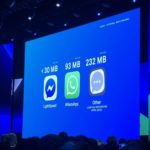

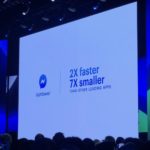
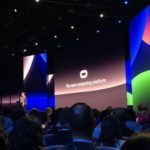

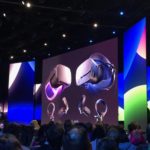

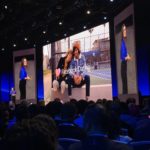
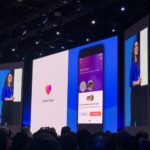
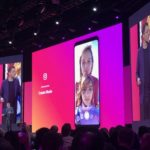
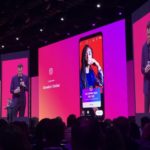
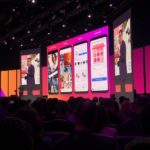
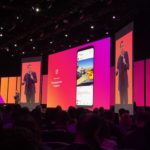
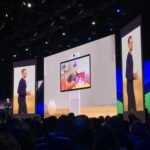
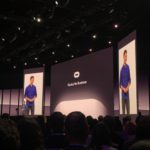
What does this mean for the business of apps and marketing?
VR is growing more in viability which means new opportunities.
Businesses can expand their reach right into apps like Instagram, Messenger, and WhatsApp to promote their product and make a sale.
With communities becoming a strong focus, it’s now more important than ever for a business to become a community manager.
This appears to be a bright, private future. Hello, Future!
Want to learn more about how these new experiences can work for you? Let’s talk!

MEDL Mobile ranked One of Best UX and App Developers in LA
Making Mobile Accessibility Apps & Devices, More Accessible.
